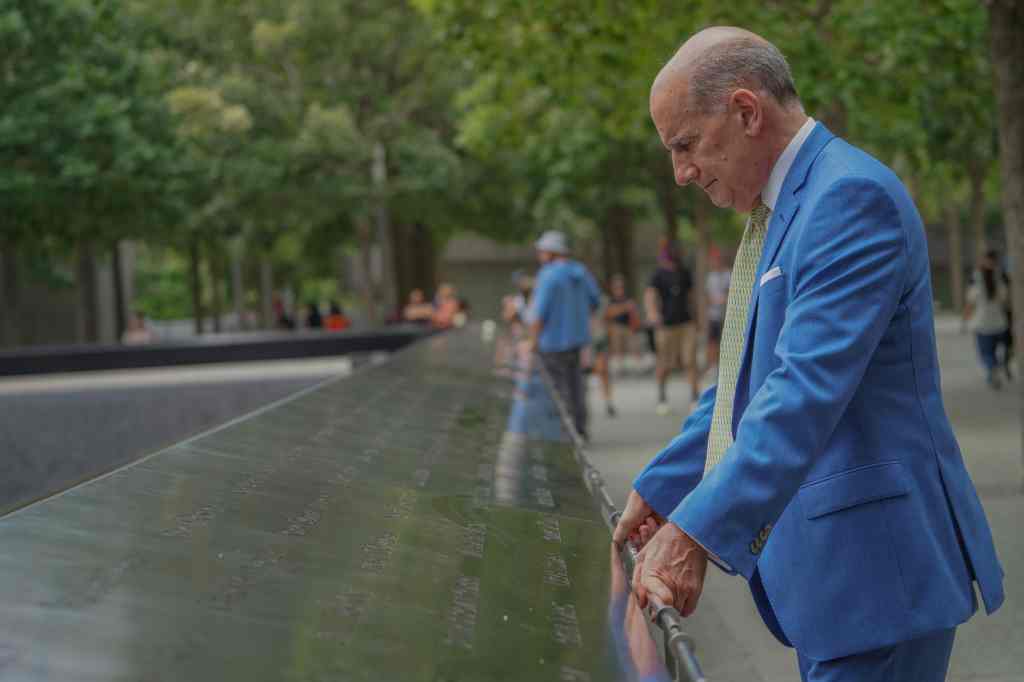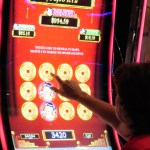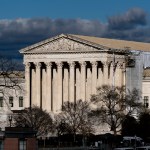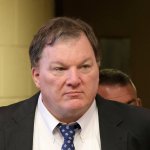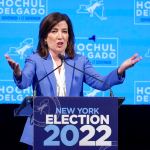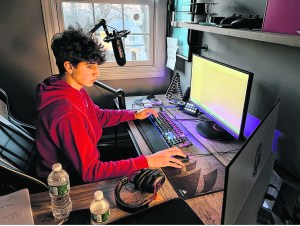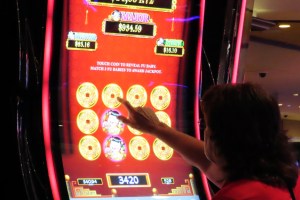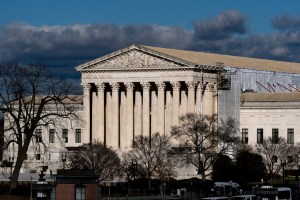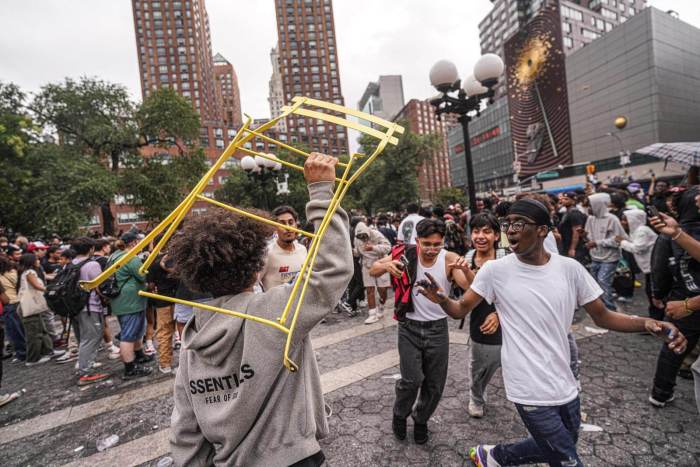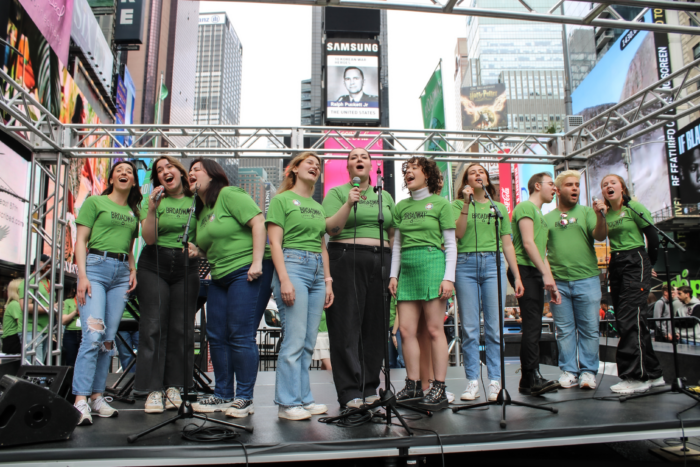On Sept. 11, 2001, Nicholas Papain, one of New York’s most well-respected personal injury attorneys, was in a Brooklyn courthouse, waiting to select a jury for an upcoming trial, when news quickly spread of the terrorist attacks on Manhattan’s World Trade Center.
Papain left the courthouse moments after the South Tower collapsed. From the courthouse steps, he watched in disbelief as the North Tower collapsed, a half hour later. He recalls seeing billows of smoke covering Lower Manhattan where the towers once stood.
“I remember looking at my shoulders and seeing white flakes, which I soon realized had traveled from Ground Zero across the East River to the steps of the Brooklyn courthouse,” Papain recalls.
With fear and uncertainty surrounding the attacks, Papain remembers trying, frantically, to find out if anyone at his office at 120 Broadway, just a few blocks from the WTC, had been injured or killed. While some were caught in the waves and clouds of dust and debris that consumed the area when the towers collapsed, no one at the firm had been physically hurt. His attention then turned to the unimaginable grief thousands would suffer when they learned a loved one was among the 2,977 who perished in New York City that day.
Nick Papain is a partner at Sullivan Papain Block McGrath Coffinas & Cannavo, P.C., which has 40 attorneys who specialize in representing victims of negligence and wrongdoing. For more than four decades, Sullivan Papain has also served as general counsel to the Uniformed Firefighters Association of Greater New York, which has some 20,000 active and retired members. Papain and his firm had represented many New York City firefighters in the past, for injuries and death sustained in the line of duty, but little did they know just how important a role the firm would play in the wake of the deadliest attack on American soil since Pearl Harbor.
When the towers collapsed, 343 New York City firefighters perished while trying to rescue those who were trapped.
“Our firm has had a very special relationship with New York City firefighters for more than 40 years, so their losses really hit us hard,” Papain says. “I would often think of how as thousands of people who worked in the towers were being evacuated, hundreds of New York City’s bravest were running up those stairs into harm’s way, never to be seen again.”
Two days after 9/11, Papain returned to his office to see if there was any damage and to retrieve equipment needed to continue operations at the firm’s Long Island office.
“I parked my car on the Brooklyn side of the Brooklyn Bridge, and walked across,” h recalls. “I was the only one on the bridge. As I walked towards Lower Manhattan, there was an eerie silence and stillness throughout the usually bustling area. It reminded me of a scene out of a Day After science fiction movie.
“It seemed as if I was the only one there, other than military personnel guarding the area and first responders engaged in rescue operations,” he continues. “Looking up at where the towers once stood, there was now just smoke and a burning fire coming out of a hole. That fire continued to burn for a couple months. You could smell it as soon as you exited the subway.”
The rescue efforts soon turned into a recovery mission, but it would be a long time before the full impact of the 9/11 terrorist attacks would be known.
In late 2001, Papain’s partner at Sullivan Papain, Michael Block, helped to establish the September 11th Victim Compensation Fund to provide compensation for the families of those who had been killed, and for those who had been seriously injured, as a result of the terrorists’ attacks. By the time the fund closed in 2004, Sullivan Papain had secured more than $260 million for 363 injured firefighters and families of fallen firefighters — all for no fee — earning the firm the National Law Journal’s 2004 Pro Bono Award.
“The firefighter community was hit extremely hard by the terrorist attacks,” Papain says. ”We saw our pro bono work as a way to give back to those who had lost so much in the line of duty.”
When the fund closed, Papain and his partners knew that the human toll of the 9/11 attacks would continue to grow. Papain’s law firm continued to receive phone calls from firefighters and other first responders who had been diagnosed with respiratory illnesses as a result of their exposure to the deadly toxins that permeated the air around Ground Zero for months following the attacks.
“After the fund closed, we were the first to bring suit, in federal court, on behalf of injured first responders, against the City of New York and its contractors for failing to provide proper respiratory equipment during the rescue and recovery operations,” Papain adds.
The World Trade Center Lower Manhattan Disaster Site Litigation, as the case became known, lasted for six years. The number of claimants grew to more than 10,000, with Papain’s firm representing more than 600 firefighters. Appointed by the court as co-liaison counsel to the claimants, “my firm assumed a leading role in a long and hard-fought litigation that culminated in a 2010 global settlement for over $700 million.”
Meanwhile, in early 2010, a bill to reopen the 9/11 Victim Compensation Fund languished in Congress.
”The political pundits told me the bill to reopen the fund would never become law. I made it my mission to prove them wrong,” Papain recalls. “In 2010, I, along with many first responders and other supporters, met with legislative leaders to convince them of the need to reopen the fund for the many who had been diagnosed with 9/11-related disorders long after the first fund had closed.”
Those efforts paid off with the bill being passed by both houses of Congress in the closing days of the 2010 legislative session. The bill was signed into law on Jan. 2, 2011. Notwithstanding, Papain notes, “Our work to ensure adequate coverage was far from done, with both the additional funding and five-year extension proving to be woefully inadequate.”
In 2015, legislation was enacted providing additional funding and extending the fund another five years. Finally, on July 29, 2019, the fund was permanently extended.
“During the past two decades, I’ve seen myself as a voice for 9/11 first responders. Given my firm’s role in representing them since day one, and our longstanding relationship with New York City’s firefighters, I have always thought it incumbent on me to do so,” Papain says.
Papain is quick to point out that “the 9/11 Victim Compensation Fund is not just for sickened first responders. The fund is also for Lower Manhattan workers, residents, and students (below Canal Street) who have been certified by the World Trade Center Health Program as having a 9/11 WTC-related physical illness linked to their exposure.”
Sullivan Papain has represented more than 3,000 first responders, workers, residents, and students in the Victim Compensation Fund, obtaining some of the highest awards issued. As the partner in charge of the firm’s 9/11 practice, there have been few greater champions for their cause than Papain, who continues his 9/11 work to this day. He is emphatic that each client knows they have an attorney in charge of their case, who is always available to take their call.
“They deserve that type of representation,” he said. “Many have suffered not only physically but mentally as well. Many of our firefighters lost close friends and co-workers on 9/11. Some lost their entire company. Many witnessed unspeakable horrors. Because of their 9/11 experiences, many first responders suffer from post-traumatic stress.”
Papain’s dedication to helping those impacted by 9/11 extends beyond his work as an attorney. Papain’s father was a Greek immigrant, from a small village in central Greece called Karitsa. When his dad arrived in this country in December 1929, at age 15, the Lower East Side became his home.
”My father was a man of faith who was drawn to a small Greek Orthodox church, at 155 Cedar St. in Lower Man-hattan, called St. Nicholas. It had been a small tavern that a group of Greek families had purchased and converted into a church,” Papain notes. “St. Nicholas was completely destroyed on 9/11 when the South Tower collapsed. It was the only non-WTC structure destroyed in the attacks. St. Nicholas was only a couple of blocks from my office, and so, before 9/11, I would on occasion go in to light a candle and say a prayer. Its destruction became a rallying cry for the Greek-American community, to have it rebuilt as not only a church but also as a national shrine,” he added.
In the 20 years since 9/11, more than $95 million has been raised for the construction of the St. Nicholas Greek Orthodox Church and National Shrine, in Liberty Park adjacent to the 9/11 Memorial.
“St. Nicholas will not only serve as a GreekOrthodox Church, but also as a National Shrine and place of healing for all those whose lives were changed by 9/11,” Papain notes. It is scheduled to open in the spring of 2022.
“Giving is the greatest gift of all,” Papain adds. “When it comes to 9/11, I’m grateful to be part of a firm that has given to those who suffered and lost so much, and I’m equallyhumbled to be part of a community that helped to rebuild a small church into a national shrine where all may seek solace from the wounds of 9/11.”



